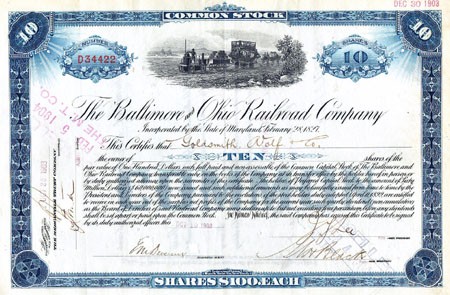Investing in Utility Stocks With High Dividends Pros Cons
Post on: 20 Июль, 2015 No Comment

Investors seeking decent returns on their money with minimal volatility have been frustrated in recent years with the low rates from CDs and treasury securities. Many have begun exploring other asset classes, such as corporate bonds, fixed annuities. and preferred stock .
But there is another alternative that has been around for decades, one that has paid steady dividends with moderate risk. Utility stocks have been one of the bellwether sources of dividend income for conservative and moderate investors since the early 1900s.
Characteristics of Utility Stocks
Utility stocks are common stocks that represent shares of ownership in a utility company, and they usually pay dividends on either a monthly or quarterly basis. One of the reasons why utility stocks tend to be stable in price is because the government allows them to act as monopolies within their respective municipalities, as it would be inefficient and wasteful for several different companies to lay water pipes, gas lines, and telephone wires within the same areas. This serves to stabilize the industry, and allows each utility to operate unencumbered by competition.
Utilities are classified as a defensive industry because the need for their service remains largely unchanged regardless of economic conditions. Society cannot function without running water, electricity, natural gas, and telephones, even during recessions and depressions, so utility company revenues remain largely constant. Utility stocks are accorded the same tax treatment as other common stocks, with dividends that are fully taxable as ordinary income and long or short-term capital gains or losses that are realized when they are sold.
Advantages of Utility Stocks
- Regular Dividend Income. Because of their stable income base, utility companies are able to pay steady, reliable dividends to shareholders with minimal price volatility and moderate risk. Dividend rates on utility offerings are also typically anywhere from 1% to 3% higher than for guaranteed instruments, which makes them very attractive alternatives to CDs or savings bonds.
- Liquidity. Because they can be sold at any time, utility stocks offer much greater liquidity than bonds or CDs, as there is no early withdrawal penalty of any kind.
- Defensive Protection. Utility stocks often do well during bear markets. which can make them a valuable addition to any portfolio.
- Tax-Advantaged Income. Investors who hold utility stocks for at least 60 days during the 121-day period following the ex-dividend date of the stock are eligible to have their dividends classified as qualified dividends, which are taxed at the lower long-term capital gains rate. This is an additional advantage over receiving interest from bonds or CDs, which is always taxed as ordinary income outside of an IRA or retirement plan.

Disadvantages of Utility Stocks
- Limited Growth Potential. Although utility stocks offer competitive dividends, their stability in price precludes the possibility for much capital growth. Although there are instances where a utilitys stock may drop to the point that it becomes a value play, stocks in this industry generally do not rise much in price over time.
- Risk of Principal. Although their price volatility is relatively low compared to other sectors such as energy or technology, utility stocks are not covered by FDIC insurance or any other form of governmental protection. It is possible to lose money if the stock price declines which does happen at times.
Who Should Invest in Utility Stocks?
Utility stocks are appropriate for older investors who seek income without substantial risk to principal. They can also be used by moderate investors who are looking to improve the yield they get on their liquid funds for either the short or long term.
Aggressive investors can look to utility offerings as an effective means of diversification in their portfolios, both for the income that they pay and their defensive nature that lets them keep their value in bear markets. Corporations can even use utility holdings to generate tax-free income, as they often do not have to pay tax on dividends received from other corporations.
Where Can I Find Utility Stocks?
Any full-service stockbroker, online discount broker, or investment advisor can point you to a variety of utility offerings paying competitive dividends. They are also listed every day in financial publications such as Barrons and the Wall Street Journal.
There are also several mutual funds that invest in utilities, which can be found at Morningstar. Investors seeking diversification in this sector should also check out the SPDR (Standard & Poors American Depository Receipt) that invests in utilities (ticker symbol: XLU) and trades as an ETF .
Final Word
Utility stocks can often provide a viable alternative to traditional guaranteed fixed-income offerings for those who are willing to accept a moderate amount of risk. Although they seldom provide capital growth, they have a long track record of paying steady dividends at a stable price. For more information on utility stocks, check your local stock listings or consult your financial advisor.














